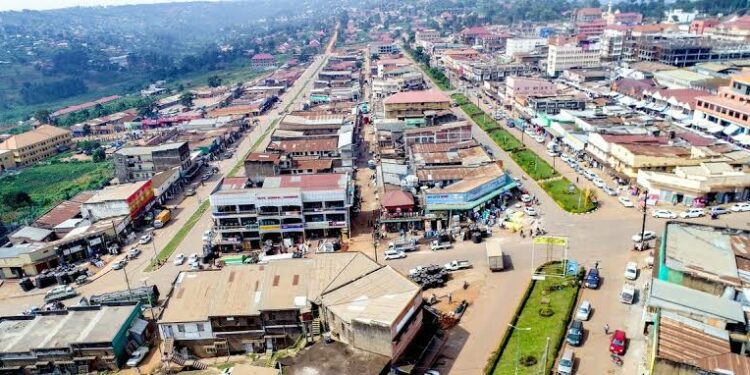A year or so ago, I had a meeting in Masaka town (now city, allegedly!), which was scheduled for 9.00am. I decided to leave Kampala early and be in Masaka in time for the meeting. By 7.30am, I had arrived and parked on the street. At around 8.00am, I decided to take a walk for about 45 minutes. I simply couldn’t recognize the town yet I went to school and lived in this part of the country for many years. The town that I thought I knew like the back of my hand was now every different. I must have looked like a tourist!
Masaka was also buzzing with activities. Many shops here and others there. Young people in suits moved in all directions. I was somewhat impressed. One doesn’t necessarily have to live in Kampala to make it I thought. At a hotel I later visited, they had rooms that were going for US$200. This wasn’t the Masaka I once knew. Sometime back, some businesspeople in Masaka thought owning a small hotel in Nateete or owning some rentals in Mutundwe was the ultimate dream. What an opportunity for entrepreneurship!
Over the last few years, I have had an opportunity to visit all major parts of Uganda. There is unprecedented urbanization almost everywhere. Towns are growing and bringing these areas to life. Urbanization comes with enormous opportunities and I hope this will reduce the pressure on Kampala where almost everything is done.
But also most of these rapidly urbanizing areas need to have proper plans in place so that they don’t become as clogged as Kampala. They have an opportunity to effectively plan these cities. This can’t be left to the private sector, who will simply look for an opportunity to cash in.
Take an example of housing, in Kampala, profit pressures ensured unplanned estates with the narrowest of roads anywhere in the world! Everyone builds what suits them. We have ended up creating massive slums for the middle and upper classes, something urbanizing areas have a chance to avoid.
Regional cities and other urbanizing areas must think of climate change and its effects, how to mitigate them and adapt where necessary. For example, harsh weather events are going to lead to massive flooding or create new diseases. I believe Covid-19 is just the beginning of such pandemics unless of course if we do something.
Water and paved roads don’t mix. Will bridges exist or be washed away? But in case of droughts, where will people get water from?
Talking of oil, I was in a regional city where I had to struggle to get parking and I couldn’t find one on the city’s main street. Soon, these towns will have traffic jams as people who previously walked to work or used boda bodas drive to their workplaces. Air quality will be compromised, just like it is in Kampala.
Yet as the world moves away from internal combustion engines, in Uganda, there are no clear protocols on import duty for electric vehicles. Import duty is pegged on 19th century parameters of engine cubic capacity. Toyota recently unveiled its solar cars. How will such cars be taxed? How do we ensure that urbanizing areas are ready for the next generation of electric vehicles?
Urbanising areas all over the country are already struggling with waste and don’t seem to know what to do with it. Yet biogas could easily be created from it, which will lead to energy diversification and wean the country off firewood and charcoal. We are already cutting more trees for fuel than we are planting them.
New jobs will have to be created for urbanizing areas. Many people will prefer to dress up and go to work in suits or such other clothing like those young people I saw in Masaka. The truth though is that there won’t be many jobs for suited folks.
A green economy can create many jobs. Imagine if every household had a biogas facility, how many technicians will be out there installing and maintaining them? How many others will be making equipment necessary to turn waste into biogas?
For how long can we peel our Matooke and simply throw away the waste? What about the food that we cook and can’t eat? This can be an alternative reliable source of energy for households. Building climate change resilient urban areas is necessary for Uganda’s growth.
The writer is a communication and visibility consultant. djjuuko@gmail.com
Do you have a story in your community or an opinion to share with us: Email us at editorial@watchdoguganda.com













